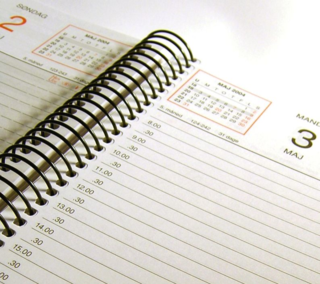
Writing Schedules
Personally, I hate the entire conversation about writing schedules.
Yet, everywhere you look there's another article about famous author's writing schedules. I'm asked about when I write and on what schedule more often than any other aspect of writing.
Writing schedules are bs.
There. I said it.
Writing schedules reflect an author's best wish for productivity. They often reflect their best day or possibly what they want the world to think they do.
Sit down with an author, and all bets are off. In reality, authors write when they can, where they can, and in the time that they have.
You'd be surprised how many bestselling books are writting in six weeks or less in a mad junkfood-and-caffeine-fueled flurry of words. One author with more bestselling books than you can imagine told me that when she's writing, her husband leaves food at her door like a prison guard in a Supermax.
Why does the myth of the "writing schedule" exist?
Because you ask.
Ask authors about their writing schedule and they'll tell you what they know you want to hear.
Most writing schedule myths have a few key components:
- Get up early or stay up late.
- Write first thing when you're "fresh."
- Write a certain number of words or pages a day.
- Add a ritualistic piece such as lighting a candle, burning sage, or drinking half a bottle of wine or whiskey or coffee or tea.
Writing schedule myths reflect our good days. When the kids are well and the porch isn't falling down and the cleaning people aren't vaccuuming and you slept well and you weren't up late marketing or fighting with your spouse.
At the time Stephen King was writing On Writing, he says that he wrote ten pages a day. He may have written this every day for the last year or quite possible the day he wrote the statement down in On Writing. But remember, he also says that in the middle of his cocaine addiction, he stayed up days at a time writing like a madman.
Earnest Hemingway was supposed to have written 500 words a day. That is, 500 words a day on the days that he wasn't too drunk, infirmed, distracted, obsessed, on a boat in the middle of the ocean, or any other nonsense.
This is what's true for me.
- Every project has it's own rhythm. I tend to write the Alex the Fey thrillers on a polyphasic sleep cycle (more later) where most of the work happens between 11 p.m. and 2 a.m. The rest of the day, I'm researching, thinking, talking to sources, and going over scenarios. The Seth and Ava Mysteries are hard writing. The goal is to keep them very short, less than 50,000 words, with all the complications of a smart mystery. Every line counts. Every twist and turn must be razor tight. I write these books first thing in the morning after many cups of coffee.
- Write most days unless you don't. I write almost every day. The people around me would say that I write every day, but in truth, I don't. Some days, I'm distracted with bees or baking cakes or YouTube workout videos. On other days, I catch the wind in my sails and I write for hours.
- Find your own rhythm right now. As a young man, Charles Dickens wrote all day at a desk in the middle of the living room with his family around. Later in life, Charles Dickens needed absolute silence to work. Find what works for you right now. You might like writing for a half hour in the morning or at lunch or when you get home at night or in the middle of the night. You won't know until you try.
- Patience wins the day. Every project has a middle point when you are too far from where you started to go back, and too far from the distant shore to see land. You are stuck in the middle of a vast ocean of words. Breathe. Be patient. You'll have another day to write, and a day after that, and one after that. Just keep laying one word after another and you will find land again.
You don't need a writing schedule.
You just need to write. So get to it.
-----
